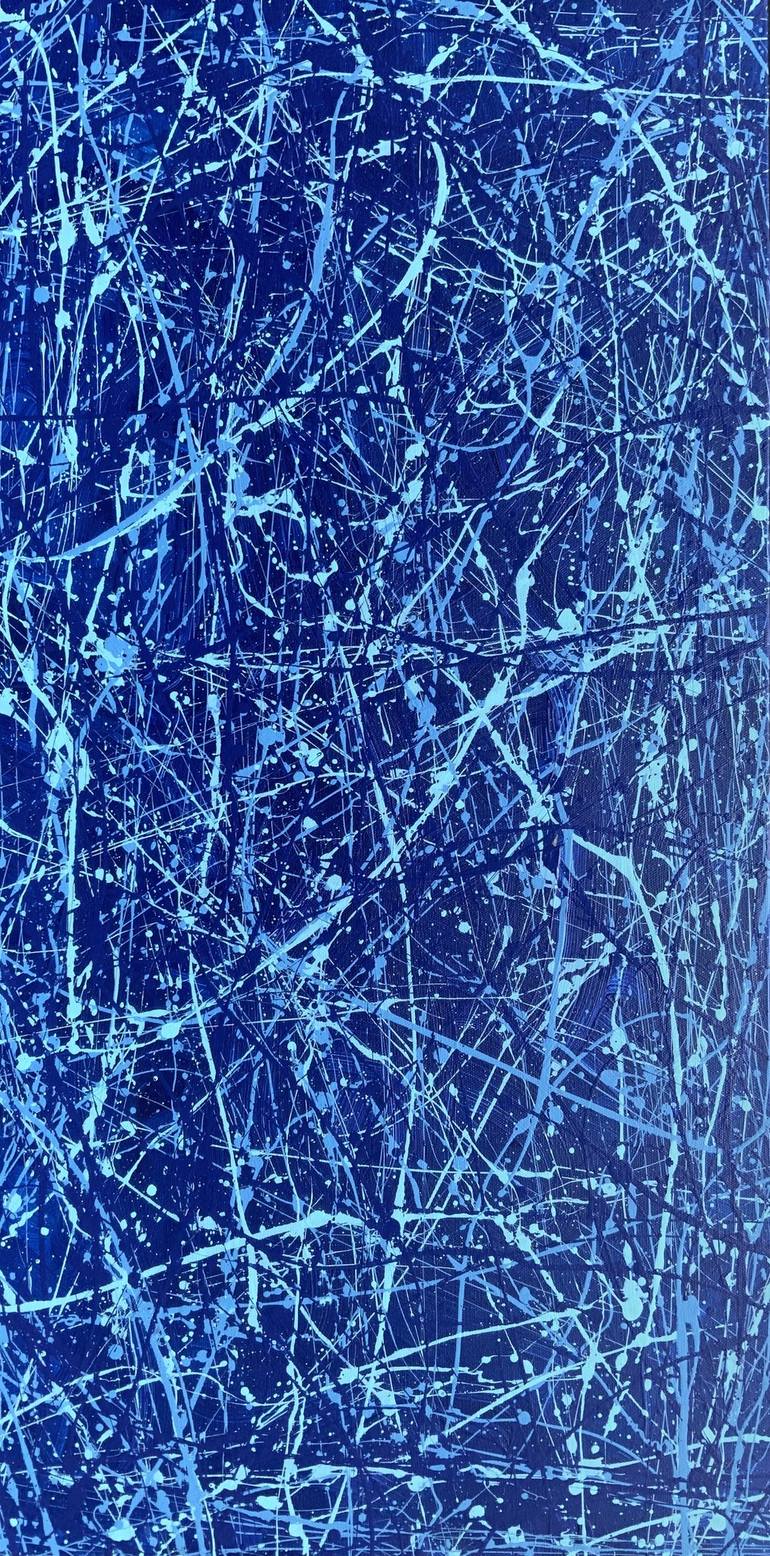







VIEW IN MY ROOM
Osaka Blues Painting
Painting, Acrylic on Canvas
Size: 18 W x 36 H x 0.5 D in
Ships in a Box
Shipping included
14-day satisfaction guarantee
Artist Recognition

Artist featured in a collection
About The Artwork
Jazz Impressions of Japan is a 1964 album by The Dave Brubeck Quartet. It was recorded on June 16–17, 1964 at the legendary CBS 30th Street Studio, except for "Zen Is When" which was recorded on January 30, 1960. It was released on August 10, 1964. The album, as the back cover of the remastered CD confirms, had been long out-of-print until it was reissued on CD in 2001, then re-released in 2008 and 2009. In the album booklet, Brubeck talks about the quartet's trip to Japan and provides poignant and interesting information for each piece of the album, explaining what inspired a certain piece, for instance. In fact, the album is a sort of trip diary. This is how Brubeck himself describes the project: "The tunes in this album are personal impressions from the Quartet's tour of Japan, Spring 1964. No one in a brief visit can hope to absorb and comprehend all that is strange to him. Sights and sounds, exotic in their freshness, arouse the senses to a new awareness. The music we have prepared tries to convey these minute but lasting impressions, wherein the poet expects the reader to feel the scene himself as an experience. The poem suggests the feeling." "Koto Song" is the only piece from the album that became a Brubeck standard; he would record it numerous times in the following years. Source: Wikipedia
Details & Dimensions
Painting:Acrylic on Canvas
Original:One-of-a-kind Artwork
Size:18 W x 36 H x 0.5 D in
Frame:Not Framed
Ready to Hang:Not applicable
Packaging:Ships in a Box
Shipping & Returns
Delivery Time:Typically 5-7 business days for domestic shipments, 10-14 business days for international shipments.
Handling:Ships in a box. Artists are responsible for packaging and adhering to Saatchi Art’s packaging guidelines.
Ships From:United States.
Have additional questions?
Please visit our help section or contact us.
I’m (I am?) a self-taught artist, originally from the north suburbs of Chicago (also known as John Hughes' America). Born in 1984, I started painting in 2017 and began to take it somewhat seriously in 2019. I currently reside in rural Montana and live a secluded life with my three dogs - Pebbles (a.k.a. Jaws, Brandy, Fang), Bam Bam (a.k.a. Scrat, Dinki-Di, Trash Panda, Dug), and Mystique (a.k.a. Lady), and five cats - Burglekutt (a.k.a. Ghostmouse Makah), Vohnkar! (a.k.a. Storm Shadow, Grogu), Falkor (a.k.a. Moro, The Mummy's Kryptonite, Wendigo, BFC), Nibbler (a.k.a. Cobblepot), and Meegosh (a.k.a. Lenny). Part of the preface to the 'Complete Works of Emily Dickinson helps sum me up as a person and an artist: "The verses of Emily Dickinson belong emphatically to what Emerson long since called ‘the Poetry of the Portfolio,’ something produced absolutely without the thought of publication, and solely by way of expression of the writer's own mind. Such verse must inevitably forfeit whatever advantage lies in the discipline of public criticism and the enforced conformity to accepted ways. On the other hand, it may often gain something through the habit of freedom and unconventional utterance of daring thoughts. In the case of the present author, there was no choice in the matter; she must write thus, or not at all. A recluse by temperament and habit, literally spending years without settling her foot beyond the doorstep, and many more years during which her walks were strictly limited to her father's grounds, she habitually concealed her mind, like her person, from all but a few friends; and it was with great difficulty that she was persuaded to print during her lifetime, three or four poems. Yet she wrote verses in great abundance; and though brought curiosity indifferent to all conventional rules, had yet a rigorous literary standard of her own, and often altered a word many times to suit an ear which had its own tenacious fastidiousness." -Thomas Wentworth Higginson "Not bad... you say this is your first lesson?" "Yes, but my father was an *art collector*, so…"
Artist Recognition

Artist featured by Saatchi Art in a collection
Thousands Of Five-Star Reviews
We deliver world-class customer service to all of our art buyers.
Global Selection
Explore an unparalleled artwork selection by artists from around the world.
Satisfaction Guaranteed
Our 14-day satisfaction guarantee allows you to buy with confidence.
Support An Artist With Every Purchase
We pay our artists more on every sale than other galleries.
Need More Help?